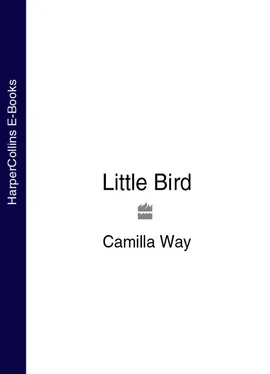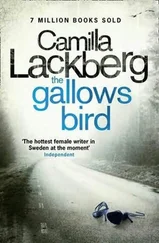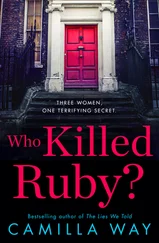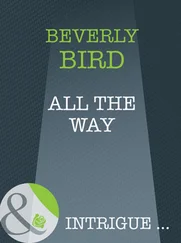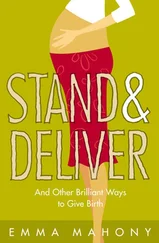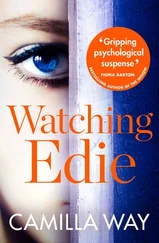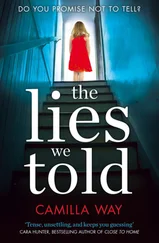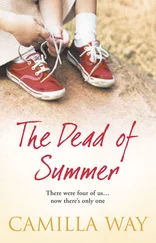Pictured: Deserted foresters’ shack where depraved Bresson trapped Brun for decade.
Science Tomorrow magazine
October 1995
‘Little Bird’ takes flight amid storm of controversy
The extraordinary case of Elodie Brun, the child found in a Normandy forest last month, has taken a new twist that looks set to reignite one of the most fiercely debated issues in cognitive science – how we learn to speak.
The twelve-year-old, nicknamed ‘Little Bird’ due to her astounding ability to mimic birdsong, was abducted in 1985 by Mathias Bresson. A mute since birth, Bresson took the child to a remote hideaway in the heart of the 20,000-hectare Forest de Breteuil, where the two lived for ten years until Bresson’s suicide last month.
Since it emerged that the girl has no knowledge of language, she has been attracting attention from scientists and linguists worldwide. Until now, our knowledge of how the brain acquires language has stemmed largely from theoretical arguments. Experts from Noam Chomsky to Steven Pinker have long debated the extent to which it is innate or learnt and how far is it affected by environment, brain lateralization or other cognitive factors.
No definitive answer has yet been reached because cases of ‘feral’ or ‘isolated’ children – children who have grown up without language – are extremely rare. But, for Elodie Brun, at least, a glimmer of hope has arrived in the shape of Doctor Ingrid Klein, head of cognitive science at New York University. Klein, an acclaimed expert in psycholinguistics and author of three seminal books on the subject, has been granted permission to take Elodie back to her home in Long Island, New York, in what could be one of the most important studies in this field in recent times.
In an exclusive interview, Doctor Klein told Science Tomorrow , ‘Speech is fundamental to what makes us human and I believe I will be successful in teaching Elodie to speak as well as you or I. Although she has led an extraordinary life, she is a happy, healthy and bright child with no evidence of having suffered any physical or emotional damage. My work with Elodie with the help of US government funding and with adequate scientific monitoring will, I hope, prove that not only is it possible to rehabilitate such a child but that she will be able eventually to live a normal life and integrate fully with society.’
The decision to move Elodie so far from her homeland and family has been met with controversy in France, however. But as Elodie’s mother is now unable to care for the child herself she has reportedly given the plan her full approval.
‘This is not just a scientific experiment,’ says Klein. ‘I have Elodie’s mother’s support and I am a mother myself. I believe that the best place for Elodie is in a nurturing environment where she can be helped by experts at the top of their field. That place is with me and my team in the US.’
The notion of the ‘wild child’ has captured the public imagination since the legend of Romulus and Remus. The idea of the uncivilised being taught to function normally in society is the stuff of both myth and romance. However, it’s a sad fact that such cases rarely end well. If an isolated, confined or feral child has not learnt to speak during the so-called ‘Critical Period’ outlined by Lenneberg and supported by most neurologists (see box, left) they will never learn to do so. Once rescued, nearly all such children fail to be successfully integrated into society and remain forever institutionalised.
If Klein is successful her findings will not only mean a happy ending for ‘the bird child of Normandy’, but also significantly increase our understanding of how the human brain acquires language, in what could be one of the most important experiments in cognitive science for some time.
Deptford, south-east London, 22 September 2003
When Frank woke with Kate in his bed he watched her sleep for a while and willed the moment to last a little longer. Sunlight shone through dirty windows throwing the shadow of a dead geranium across the sleeping girl’s cheek. He dreaded her waking up – the inevitable moment when she opened her eyes and realised where she was and made embarrassed excuses about having to leave, how she never does this sort of thing, how she’s actually seeing someone else and then the hurried lies that she’ll phone him. The bullshit he usually gave, he realized, and wondered when it was that he’d last cared about a girl.
A crow swooped past the window, cawing noisily. Kate woke with a start, her eyes fixed at once on his. After a second or two she smiled and cupping Frank’s face, drew him towards her and kissed him. Relief flooded his veins.
‘Tell me,’ he asked later, when they were contemplating each other across the tangled sheets. ‘Where are you from? You’re not from London, are you? Are you American? What were you …’
She touched his lips to quieten him. ‘Later,’ she said. ‘Another day.’ And then she said, ‘I have to go.’
‘When can I see you again?’
‘Soon.’
‘Tomorrow?’
It was gone five by the time he walked the twenty-minute journey to his mother’s flat. A late-September day when the first cool tendrils of autumn begin to unfurl and creep through the last watery sunlit warmth of the year. The sky was pale and damp, nicotine stained. Kids yelled to each other in the remaining hours of the weekend, lone cars approached then growled on past, cats blinked at him from windowsills. And it felt like his blood sang. Like every smell and sight and sound was new and improved and unbeatable quality and he had never felt so real and certain before, never felt so sure of himself and his place in the world and it was all because of her.
At Chrysanthemum House Frank whistled as he sprang up the eight flights of stairs to his mother’s floor. Outside her door he paused on the narrow landing and looked out at the familiar view. Beyond the estate he could see southeast London spread out before him. New Cross, Lewisham, Deptford, Greenwich: a vast grey sea turning and tugging in the twilight, while in the distance the towers of Canary Wharf gazed down upon it all, unmoved.
Directly opposite, Gladioli House and Hyacinth squared up to each other in the failing light. From one lone window a white and red flag of St George fluttered resentfully in the breeze. In the scrubland below a few skunk-dazed kids lounged upon a bench, mumbling to each other from beneath their hoods while a girl dragged her screaming pushchair past a sign that said No Ball Games. Frank turned to unlock the door with his spare key. Next to it, uneven letters scratched into the brickwork said, ‘Eugene Rules’, and ‘Jimmy is a bender’. He grinned as he let himself in.
‘Mum?’ The familiar bleachy heat of his mother’s flat hit him full in the throat. He found her on the sofa, boredom and loneliness draped around her shoulders like a favourite cardigan and he felt his spirits nosedive. If it hadn’t been for the fact that she was dressed in different clothes, he would have sworn that she hadn’t moved a muscle since he’d last been there two days ago.
‘You all right then?’ he asked, sinking into the sofa next to her while the TV blared in the stuffy lounge.
She nodded without looking up.
‘Been up to much?’
She stabbed the remote at the TV set until David Dickinson loomed orange on the screen. They both knew she didn’t need to answer that: she hadn’t been outside for almost a decade. She had not once left this flat for nearly ten years. Restlessly he got up to fiddle with things around the room. On the coffee table, by a pile of Tarot cards, sat a variety of unopened aromatherapy bottles. Along the mantelpiece was a selection of runes gathering dust. The shelves were full of various self-help books ordered from the pages of a Sunday supplement. Frank scanned their spines and knew without having to look that each one would be bookmarked a few chapters in, showing the point where his mother had given up and gone back to the sofa and the telly. He sat back down. ‘Any good?’ he asked, nodding at the screen.
Читать дальше
